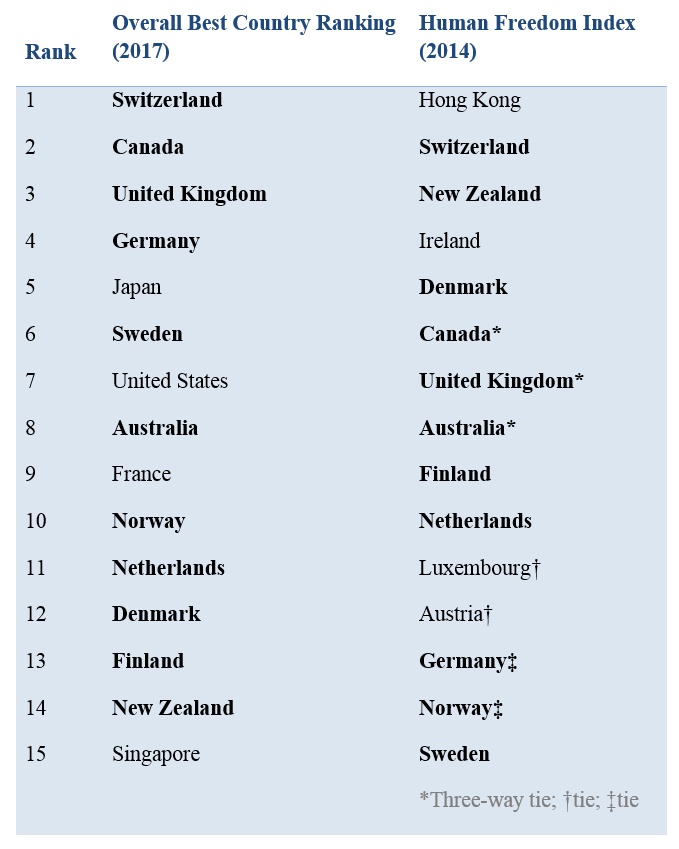The Overall Best Country Ranking is a fascinating new list from US News & World Report that ranks 80 countries in relation to one another. A set of 65 country attributes—including great food, rich history, fun and a pleasant climate—were identified by researchers at BAV Consulting and the Wharton School of the University of Pennsylvania. Those “attributes” were then presented in a survey of more than 21,000 people from around the world. Participants then assessed how closely they associated each attribute with a particular nation. Interestingly, freer countries did very well. Freedom, it turns out, makes countries, in the eyes of the public, better.
A country’s position in the Overall Best Country Ranking correlates strongly with its score on the Human Freedom Index, which is the most thorough measure of personal, civil and economic freedom yet created for a large set of countries. In fact, a quick look at both the Overall Best Country Ranking and the Human Freedom Index shows that eleven of the top fifteen countries in each ranking are identical. Switzerland, for example, ranks number one on the Overall Best Country Ranking and comes in second place on the Human Freedom Index. Canada takes second place on the Overall Best Country Ranking and ties for sixth place on the Human Freedom Index, and so on.

Human Progress
In fact, 40 percent of the variation in a country’s place on the Overall Best Country Ranking can actually be explained by its Human Freedom Index score, according to an analysis using statistical software. Moreover, my colleague Chelsea Follett and I have found that there was less than a 0.001 percent likelihood of our analysis results occurring if there were no relationship between the two. Put differently, a country may move up in the Overall Best Country Ranking by offering more freedom to its people.
That makes for a nice talking point, but, as libertarians know, freedom is good for more than simply improving a particular country’s position in an inconsequential ranking list. The benefits of freedom are manifold: higher incomes, longer lifespans and lower rates of infant mortality, etc. You can explore the incredible progress that ordinary people have created wherever they have been given the freedom to do so on HumanProgress.org.
This first appeared in Reason.

